
Becky Blunk
Becky Blunk from the University Campus Suffolk wrote the following case study about using Lego Serious Play in library context.
Learning Services at University Campus Suffolk (UCS) consistently strives to implement teaching and learning practices that are innovative, creative and effective in order to better engage with our dynamic population of students. Over the summer, we began developing a means to introduce Lego Serious Play (LSP) into our academic and library support teaching sessions – including facilitation training, purchasing the necessary kit, and working with academics to capitalise on the opportunity.
For those unfamiliar with the concept, LSP was developed by Lego, primarily for use in business settings to explore team building and group dynamics. Recently, the tool has been adapted for use within library and academic settings for similar purposes. However, Learning Services at UCS have decided to move beyond utilisation with staff and have looked toward investigating implications for using the tool directly with students, focusing on the cognitive links associated with exposure to LSP and skills acquisition related to library and academic services. In other words – if LSP positively influenced staff synergy within the global business sector, what was stopping it from providing a useful means of developing library and other learning skills amongst students?
Resistance is Futile
In order to proceed with introducing LSP into teaching, however, we were going to need willing student participants to test the waters. And because trying to get students to participate in pilot projects over the summer is like trying to get reading lists from lecturers before the term starts, we knew our best bet would be to embed the sessions within our Get Ahead programme, aimed at first year and/or mature students returning to academic life. By including LSP into the timetable for each group – arranged according to course area – not only did the sessions serve as an icebreaker to help the students feel relaxed in an often seemingly sombre environment, but also to demonstrate the value we saw in LSP as being a dynamic, innovative approach to learning.
Not surprisingly, we were often met with thousand yard stares and a few raised eyebrows. The students who signed up for the programme quite likely did not anticipate their librarian, previously introduced as being a qualified professional employed to support their understanding of information literacy, acquisition and development, would immediately belt out (in an American accent, no less), “Right, guys . . . ready to play with some Lego?” It’s a difficult concept to sell – ‘playing’ with objects reminiscent of childhood and/or parenthood and encouraging divergent thinking from students who may not be confident in traditionally academic abilities – but I was determined to persuade each group to give LSP a chance because I knew there was potential for a unique learning opportunity.
A funny thing happened . . .
Not surprisingly, many of the initial builds within each session were awkward. Participants often focused on building models that portrayed literal situations and experiences (a classroom or a desk), or struggled to move beyond using the same set of bricks for each challenge. However, as each group became more familiar with the flow of the session and anticipated the questions I would ask about their models, the magic of using metaphor (a hallmark of LSP) gradually began to take hold, which allowed for a number of interesting observations to be made, including several unforeseen outcomes:
- the clock: regardless of gender, age, or course area, during every single session, when participants were asked to build a model representing something they perceive as a barrier to their learning success, at least one (and often at least two or three) person built a clock. Of course, it is not surprising that students consider time management and how they spend their times as a potential barrier to their attainment, however, as the sessions carried on, it was interesting, as a facilitator, to observe the participants and speculate as to who would begin piecing together a model resembling a clock.
- session timing: running LSP sessions at the beginning of the programme served as an icebreaker for the students by encouraging them to discuss and share their experiences with others – however, when they were held at the end of the programme, participants appeared to be more relaxed, as they were more familiar with each other and open to the creative process. That being said, LSP sessions held at the beginning of the first day provided the participants with an opportunity to socialise with each other and discuss their expectations of the programme, as well as their university experience as a whole.
- using base plates: it may seem insignificant, but introducing base plates into the Lego kit produced an important result – the majority of participants in the LSP sessions used them for each build they completed. This is worth mentioning because the use of the base plates meant that each model was confined to the parameters of the plate. Even when facilitators mentioned that base plates were not necessary to complete a build, participants still often chose to use them. Of course, the use of plates could be coincidental, but because LSP is supposed to inspire creativity and divergent thinking, it’s possible that their availability within the kit may be a hindrance to originality and inventiveness.
- pictures: it was quite interesting to see participants become more confident and interested in the sessions once we suggested they take pictures or share their models online through social media. Although hesitant at first, many of the participants began taking out their mobiles to capture their work after each build, and several ended up posting them to Twitter and Facebook. It was an interesting transition to witness – from participants seeming reluctant to partake in the activity to eagerly sharing their experiences with others.
Moving on up . . . to the STEM side
With the success of implementing LSP into introductory library sessions through Learning Services at UCS, it was important to keep our momentum going and reach out to course areas in order to explore how sessions could be further developed to tackle more formal concepts, such as literature searching or referencing within a university environment. Therefore, during the first term of the academic year, I will be working with the Sport & Exercise Science team to deliver LSP sessions to students from first to final years. These voluntary sessions have been scheduled into the course timetable and lecturers will not only promote them within their seminars, but via the VLE within the course area. Computer Games Design course leaders have also enquired about developing sessions for their students, as well as Psychology Routes, demonstrating an openness by staff to collaborate with Learning Services to provide students with creative means for growth, development, and expression.
Our hope is to offer library and academic skill-related LSP sessions for all course areas and levels throughout the academic year and demonstrate our continued commitment toward inspired student attainment.


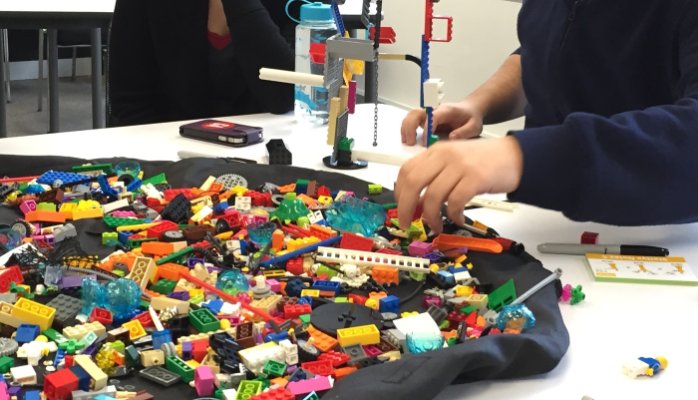
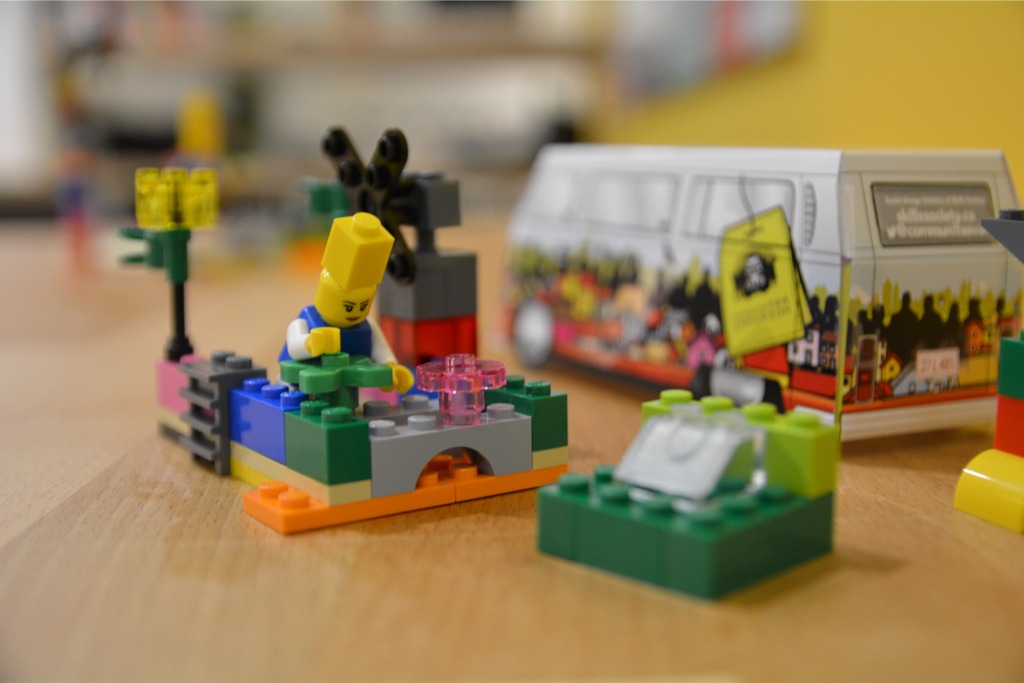
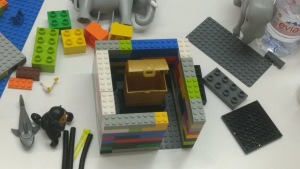
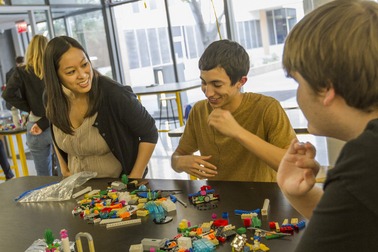

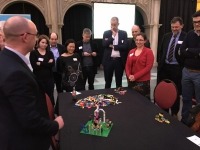
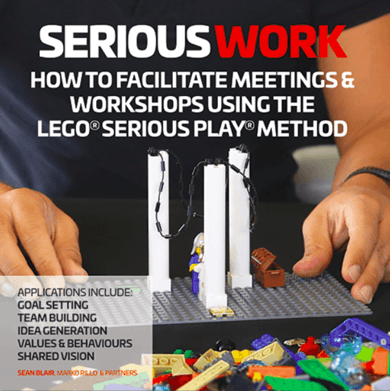
 Become a LEGO Serious Play facilitator - check one of the upcoming training events!
Become a LEGO Serious Play facilitator - check one of the upcoming training events!